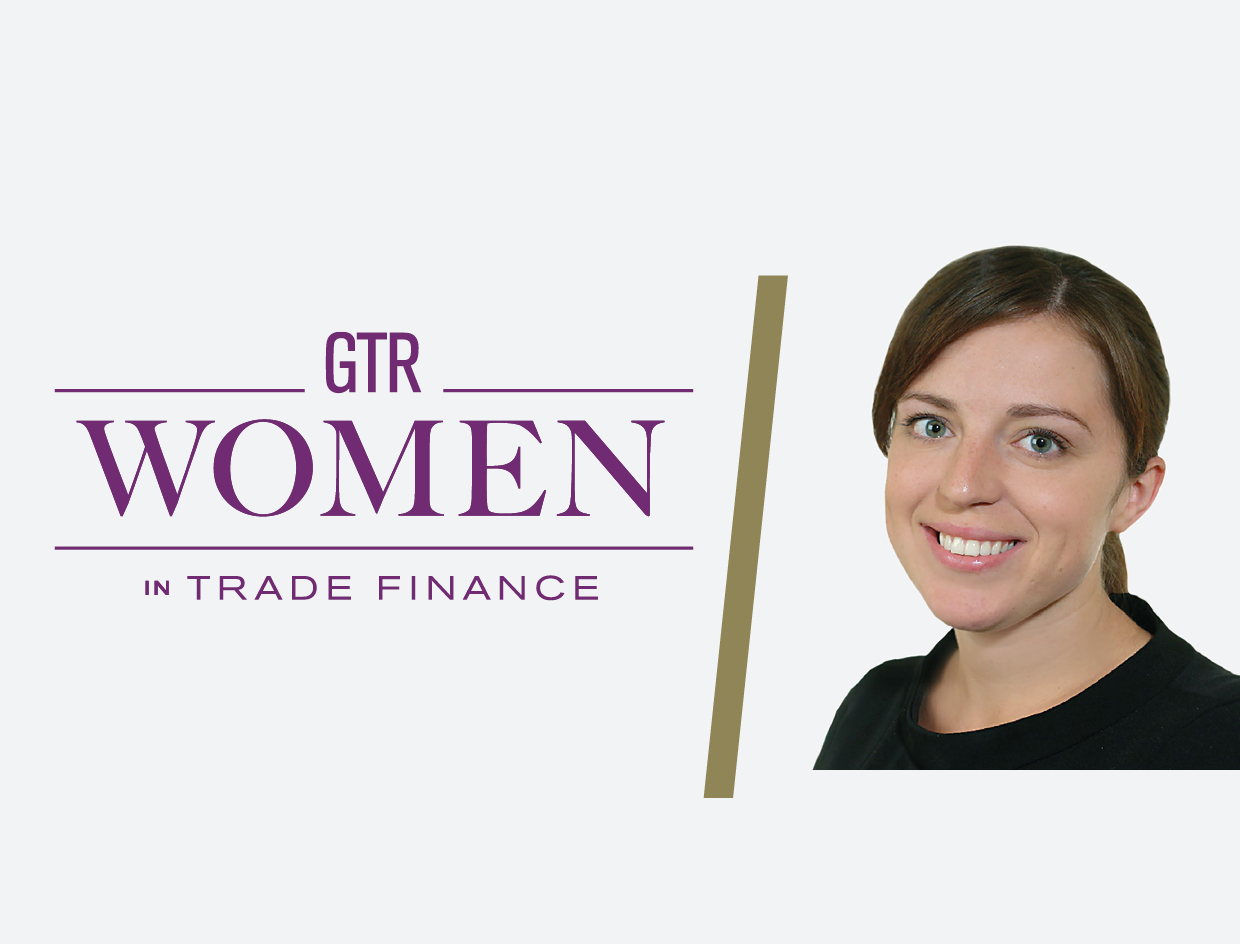A key member of Allen & Overy’s global trade, commodity and supply chain practice, Catherine Lang-Anderson has been involved in a number of ground-breaking transactions of late. Having recently been appointed counsel in the law firm’s banking practice, she tells Shannon Manders about her career highlights and how she came to be a mentor to the firm’s senior partner.
Fresh off the back of Allen & Overy having been awarded ‘Best trade finance law firm’ by GTR, Catherine Lang-Anderson is keen to talk about some of the trailblazing business that she and the firm have recently been involved in. And rightly so: many of the deals that the trade and commodity finance team have worked on of late have been in keeping with a recent trend for more ambitious structures – often in really tricky jurisdictions. “It’s been hugely satisfying to be a part of that and help clients through really ground-breaking deals,” she enthuses.
Included among these deals over the last year, Lang-Anderson has advised on the US$2.3bn restructuring of Metinvest’s Ukrainian steel and iron ore business, involving multiple schemes of arrangement in respect of the bank and bond debt. “These were trade finance structures that needed to be restructured in active conflict zones – to be able to help the company keep operating through that kind of turmoil was a privilege,” she says.
She’s also been involved in advising on the acquisition of Fertilizers and Inputs Holding – the company which carried out Louis Dreyfus’ Africa-based fertilisers and inputs operations – by Helios Investment Partners “That was a structure that had never been done before and required all of our trade finance expertise to really get under the hood of how the business operates and all of its supply chains,” she explains.
Allen & Overy was also involved in a quarter of the GTR Best Deals last year and Lang-Anderson puts the firm’s success in the GTR awards down to its teams giving “110%” on all the transactions that they’re involved in.
How, then, does she combine this utmost dedication to her practice with the demands of raising a young family?
As a mum of five-year-old twin boys, she admits it’s challenging. “But not just for women,” she says, “it’s something that men face as well”.
“My husband [also a lawyer] and I both have really demanding jobs in the same industry, so there’s no question of having that more traditional back-up at home.”
One of the ways that she has been able to strike a work-life balance since returning from maternity leave is through flexible work hours. She was originally hired into a full-time role while based in Allen & Overy’s Moscow office, but then adjusted her hours following the birth of her sons, before relocating back to London in 2013.
It’s an arrangement that the firm has been really supportive of, which she says challenges the common perception that to achieve success and progress in one’s career you have to work in a particular way.
In theory, this arrangement should enable Lang-Anderson to work three days a week, though she concedes that that’s not always realistic. “When I’m frontline on a major event-driven deal, that’s just not possible for me. So what I would typically do in such a situation is go all guns blazing on a deal – and then take some time off afterwards.”
It’s not easy, she admits, and it’s not a “perfect” solution, especially in a job that is not only demanding, but also international. Nevertheless, she values being able to have the best of both worlds through an arrangement that has only been made possible in recent years, thanks to a cultural shift and technological advances, which she credits as being “game changers”.
So does that mean that women in the trade finance industry can, indeed, “have it all”?
“Why not?” Lang-Anderson laughs. “Who makes up the rules about what you can and can’t do?”
Turning to the matter of gender diversity in trade finance, Lang-Anderson is personally involved in a number of Allen & Overy’s initiatives, from speaking at courses for emerging leaders, to reverse mentoring the firm’s senior partner Wim Dejonghe as part of a scheme to give senior leadership an insight into the practical aspects associated with rising up through the firm.
Their interaction over the last 18 months has comprised “really honest conversations” about the kinds of things the firm can be doing to try and accelerate its progress in diversity. “It’s been brilliant,” she says.
She jokes that one of the advantages of being the only female lawyer on a recent deal in the womenswear fashion sector led to her being the only lawyer to go to the store and buy a range of the clothes, meaning she could talk with some authority on the actual products being financed.
“But more seriously, I don’t think diversity ambitions are about giving one group more advantages than others,” she says. “It’s about levelling the playing field so that the most talented people can progress, no matter what characteristics they happen to have.”
More articles in GTR’s Women in Trade Finance series:
Silja Calac: “Don’t be afraid of making mistakes”
Alisa DiCaprio: “How we do trade finance today is not how we’ll do it in five years”
Sian Aspinall: “We owe it to the next generation”
Lorna Pillow: “There are no superwomen; there are only women who have support”
Emma Clark: “No one tells you that trade finance can be really fun”
Natalie Blyth: “Being the colour of the wall isn’t enough”







